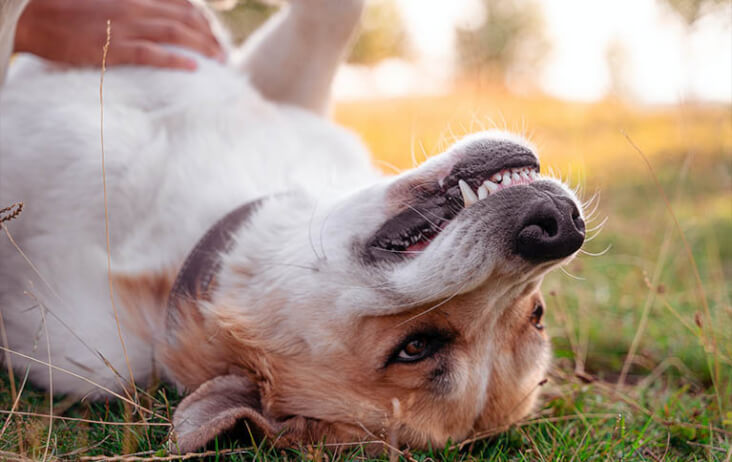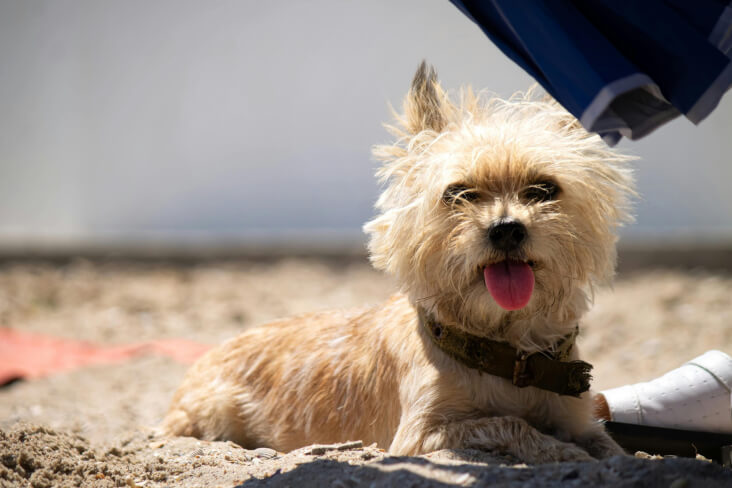Tickling for humans is the experience of having your senses and feelings rearranged.
We have all “tickled” our dogs and seen them react with seeming joy. Rolling over onto their back and kicking their legs with no control.
It can seem like they are having a great time.
But are dogs really ticklish in the way we experience it? Or is it just an instinctive reflex to touching a sensitive spot?
First we have to understand what actually happens when you tickle a dog.
What happens when you tickle a dog?
Like humans, a dog’s belly is a sensitive spot. Other hot spots include their chest, and around the front and back legs.
If you want to find where your dogs’ most ‘ticklish’ areas are, gently scratch around these areas until you hit a spot that reacts with an uncontrollable wriggle.
The technical term for this area is called the “scratch reflex”, which is an involuntary reflex that helps protect them from things like bugs.
The bottom line is – we don’t quite know wether you would classify a dog tickle in the same category as a human tickle, as it could just be this scratch reflex that they are reacting to.
Using this reflex is actually one way your vet may try to check if your dog has neurological issues. If there is no reflex when tickled it could be a sign they have nerve damage.
Do dogs like being tickled?
Most humans would classify tickling as a modern day form of torture. So can you tell if your dog is delighted with you tickling them, or unimpressed…
The key is in watching their body language.
If they are reacting with a side smile or stretch, they are most likely enjoying it. However if you are seeing signs like snarling, growling, or raised hair then it’s a sign they are becoming uncomfortable with it.
The transition just like with humans can happen within a few seconds.
What if your dog is super sensitive or asking to be tickled a lot?
A bit of tickling can be fun… a lot of tickling may indicate a deeper problem.
If your dog is super sensitive to you tickling them or is indicating that they want to be tickled more than necessary, they might be trying to tell you something.
Rashes, fleas, allergies and dry skin all fall under this category.
So if your dog seems particularly sensitive, reacts negatively to even the gentlest of touches, or has excessive itching or scratching themselves go and get it checked out with your veterinarian.







Comments